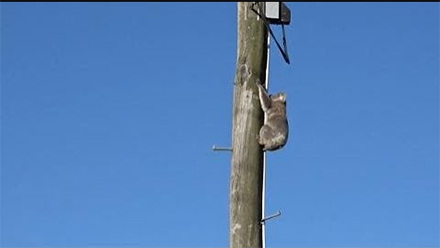The Victorian State Government is certainly getting busy spruiking its transition plans and projects to “compensate” for its closure of the native timber industry by 2030. Last week it was a new state-owned nursery growing, apparently, Mountain Ash seedlings for bushfire affected areas and then blue gum for pulp. Source: Bruce Mitchell
Today it’s the Timber Innovation Grants which will offer up to $100,000 to help timber mills and harvest and haulage businesses “explore” shifting to plantation fibre or other timber manufacturing opportunities.
Yesterday it announced it was seeking formal expressions of interest for investors and plantation developers to expand the state’s plantation timber supply.
Both projects are, on superficial examination, admirable.
The AFPA agreed that expansion of the State’s plantation timber supply is important.
But it quite rightly warned the State’s policy makers not to use it to defend its decision to shut down the native forestry industry.
The CFMEU was delightfully blunt, describing the expansion plans as “half-baked”, “Tump-like” and “no more than a mishmash of incoherent talking points”.
The biggest problem here is the very real fear the State Government isn’t listening.
Worse, it won’t listen.
To anyone. About anything.
Its management of CoVid-19 is testament to that.
But while the Victorian State Government continues to ensure that the timber industry can only fight with both hands tied behind its back, in NSW farmers and private native forestry operations have had a major win.
The very real problems facing the survival of the koala population in that State have been vigorously debated since the summer’s devastating bushfires.
There were fears the Koala State Environment Planning Policy was shifting the cost of the failure of government land management agencies to protect koalas in public conservation reserves from wildfires, to private property owners, without compensation.
It was an issue big enough to cause a major split in the Coalition ranks in NSW with the Nationals threating to supporting Government legislation.
Nationals leader and NSW Deputy Premier John Barilaro eventually backed down, but hailed a “great day, great result”.
The proof of that statement was first hinted at late last week and confirmed this week that farmers and private native forestry operations will be exempt from the controversial koala planning policy.
The new policy separates private forestry and land management into the Local Land Services Act and removes controversial habitat maps in favour of on-ground surveys.
The definition of “core koala habitat” has also been refined to mean it must be highly suitable habitat with koalas present and with a confirmed record of koalas, or highly suitable with a record of koalas in the past 18 years.
It also means that if a farmer sees a koala up a power pole, the area would not be considered high quality koala habitat.
And finally, Sustainable Timber Tasmania had something of a win over the Bob Brown Foundation by agreeing to pause logging in 19 coupes.
The Bob Brown Foundation launched legal action two weeks ago against STT, claiming its logging of native forests in Tasmania did not accord with the Regional Forest Agreements Act 2002.
The BBF also lodged an injunction application on 30 September to the Federal Court, seeking to prevent forestry activity in the 19 coupes to stop the logging of trees “essential to Tasmania’s critically endangered swift parrot”.
The decision means SST will not be exposed to a costly and time-consuming dispute regarding the injunction.
It will allow the case against the legality of the RFA by the Bob Brown Foundation to be brought forward and resolved sooner, providing some certainty for Tasmanian workers.
It could be seen as a bold move by SST and remains to be seen how it will play out.
As in all cases, only time will tell.







